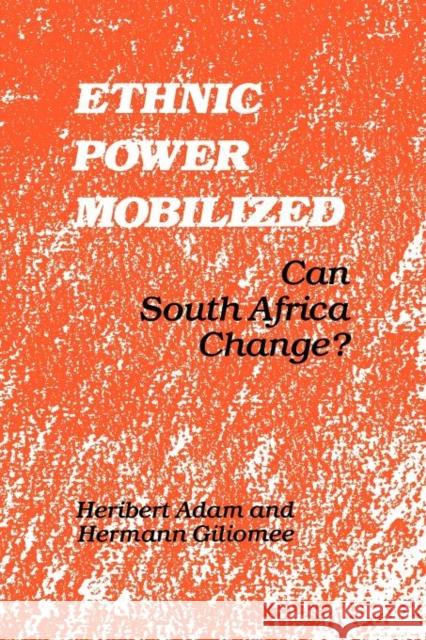Ethnic Power Mobilized: Can South Africa Change? » książka
Ethnic Power Mobilized: Can South Africa Change?
ISBN-13: 9780300184051 / Angielski / Miękka / 2011 / 322 str.
This study questions conventional wisdom about the nature and outcome of the South African conflict. Avoiding both wishful thinkiong and mere moralizing, Heribert Adam and Hermann Giliomee critically examine the applicability of such concepts as colonialism, fascism, and class exploitation cherished by the Left, and the notion of pluralism and identity on the political Right. In contrast to the liberal focus, they find the roots of the South African predicament not in ideological racism or prejudiced Calvinism but in the entrenchment of Afrikaner power and privilege. The potent force was historically mobilized against both black competitors and imperial foreign capital. Adam and Giliomee analyze the political economy of ethnic patronage in the bureaucratic expansion of apartheid administration and state capitalism. They trace both the socio-historical background and the ideologies behind changing in-group perceptions. The mechanisms by which Afrikanerdom maintains its crucial unity are evaluated against the cleavages within a ruling oligarchy in crisis. Coercion proves increasingly insufficient against politicized victims of traditional domination. Therefore, the search for a new legitimacy through inter-ethnic alliances characterizes the internal debate on political alternatives. The authros explore the limits of such co-optation strategies and assess the preconditions for federalism in an all-out confrontation.











